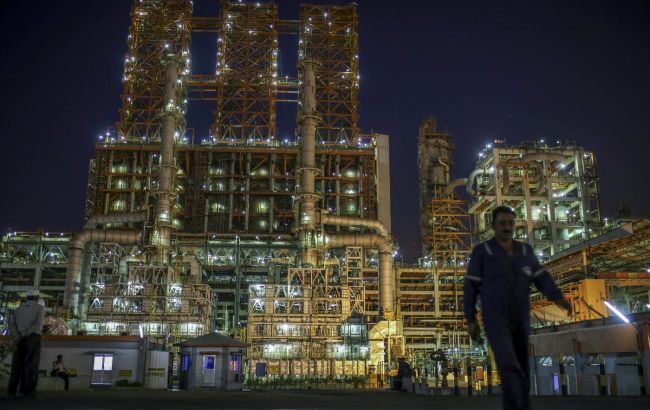India helps Nayara Energy refinery dodge EU sanctions — Bloomberg
 Photo: Indian oil refinery circumvented EU sanctions (Getty Images)
Photo: Indian oil refinery circumvented EU sanctions (Getty Images)
Nayara Energy, partly owned by Rosneft, has found ways to circumvent sanctions and has resumed exports. Russian Urals crude oil has become the main raw material, according to Bloomberg.
Government and banks' assistance
Two months after the introduction of sanctions that brought the Indian refinery Nayara Energy to the brink of crisis, the company is gradually resuming operations. This is facilitated by government support and the search for alternative payment schemes.
The refinery, which is partly owned by Russia's Rosneft, has established cooperation with banks, including the State Bank of India, to conduct settlements in rupees. Earlier, UCO Bank received government permission to work with Nayara and now processes international transactions.
Production and export
The company is returning to stable operations and is no longer limited to domestic supplies to more than 6,500 gas stations. Nayara has resumed exports using floating storage facilities and a fleet that even includes ships under sanctions.
One of the state refiners, Hindustan Petroleum, has increased its purchases of Nayara's products. The Vadinar plant is operating at 75% capacity, with Russian Urals crude as the main feedstock, supplemented by small volumes of Indian oil.
Consequences of EU sanctions
The EU sanctions announced in July by top diplomat Kaja Kallas came as a surprise to the company. They led to a management crisis and the shutdown of basic software dependent on Western suppliers.
Several members of the board of directors, including CEO Alessandro Des Dorides, resigned. The crisis intensified after shipping companies terminated contracts and insurers, with the support of the EU, refused to cover risks.
Limited exports
Despite the resumption of operations, problems remain. Major creditors, including SBI, only support domestic payments in rupees.
In September, Nayara plans to export about 2.2 million barrels of petroleum products, less than half of last year's volume. More than half of the shipments ended up anchored off Oman or transferred via ship-to-ship transshipment.
Company outlook
Some of Nayara's products are stored in tankers at sea. Since the end of August, four floating storage facilities off the coast of Oman have received about 130,000 tons of fuel.
To reduce risks, the company is negotiating with Saudi Arabia and Iraq to resume oil purchases. Nayara expects that the absence of US sanctions will allow it to quickly resume supplies.
Russia's ally
Russia accounts for approximately 40% of India's oil needs, making it the largest buyer of Russian seaborne oil. Before the war, the share was less than 1%.
White House trade adviser Peter Navarro stated that India has become a hub for processing inexpensive Russian oil. Companies buy oil at a significant discount, refine it, and export the fuel to Europe, Africa, and Asia. The proceeds go to politically connected energy oligarchs and then to Putin's military budget.
India continues to actively purchase oil from Russia, despite pressure from the US and new sanctions. The country's authorities are not signaling any reduction in imports.
Indian Finance Minister Nirmala Sitharaman said India will continue to purchase Russian oil despite the 50% US tariffs on Indian companies.

